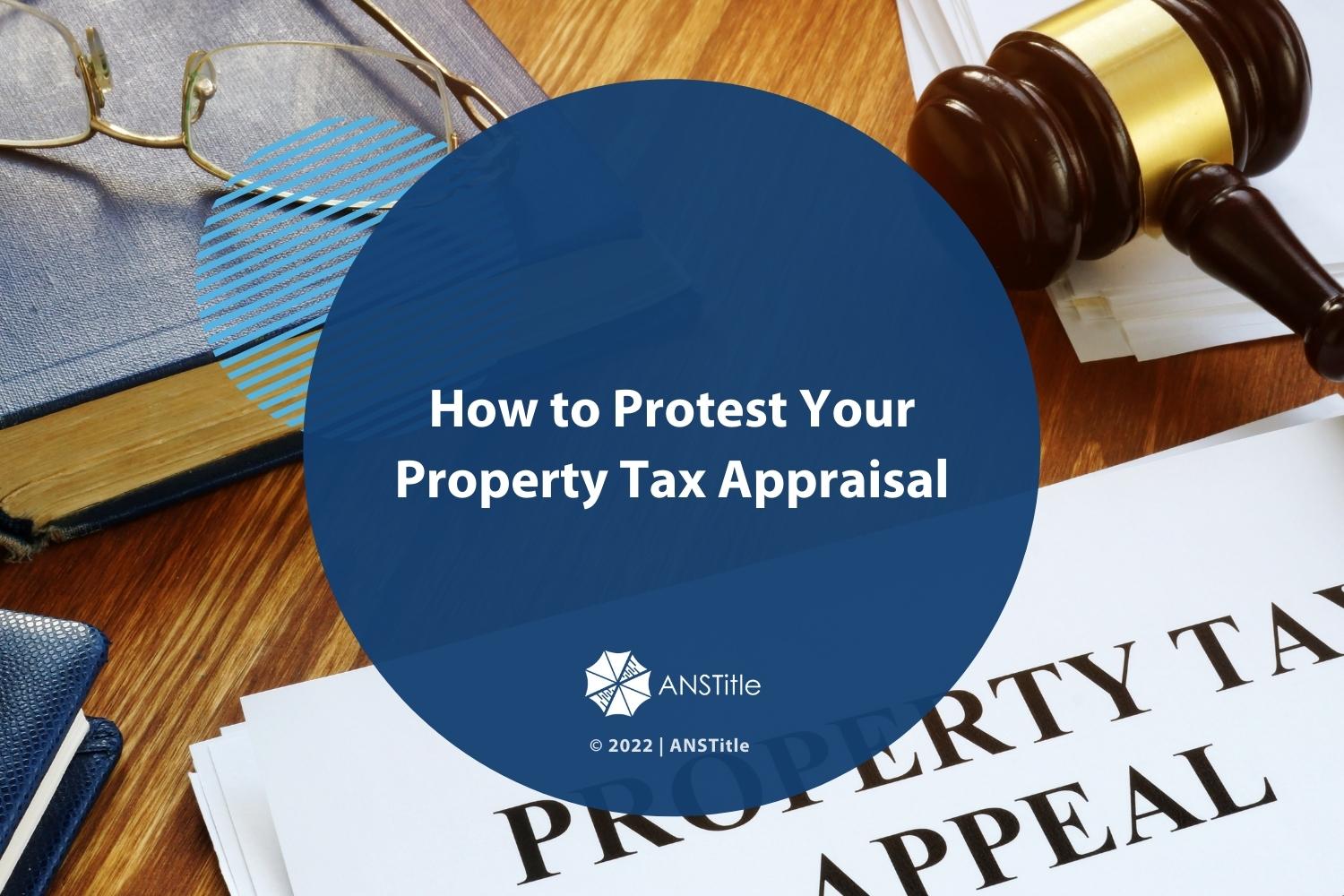Property taxes will remain one of the larger expenses associated with owning your home years after you pay off your mortgage. Yet, most property owners pay their bills year after year without ever taking the time to understand how the tax amount due was calculated and whether it was assessed accurately. There is a process in which you can protest your property tax bill.
In this article, we’ll explain how most local tax offices in the United States compute property taxes. While we at ANSTitle love helping our customers with title insurance quotes in New York and New Jersey, we also want to teach you about property values and how to protest your property tax bill if you feel that you are being overcharged.
What Are Property Taxes?
A property tax is imposed on all real estate located within the boundaries of a local jurisdiction, including both vacant land and parcels with buildings or other improvements. The tax is collected by local governments and it is typically their main source of revenue. The payment terms and deadlines vary widely from one locale to the next, however, non-payment of property taxes usually results in a tax lien and it may eventually lead to seizure and sale of the property. Â
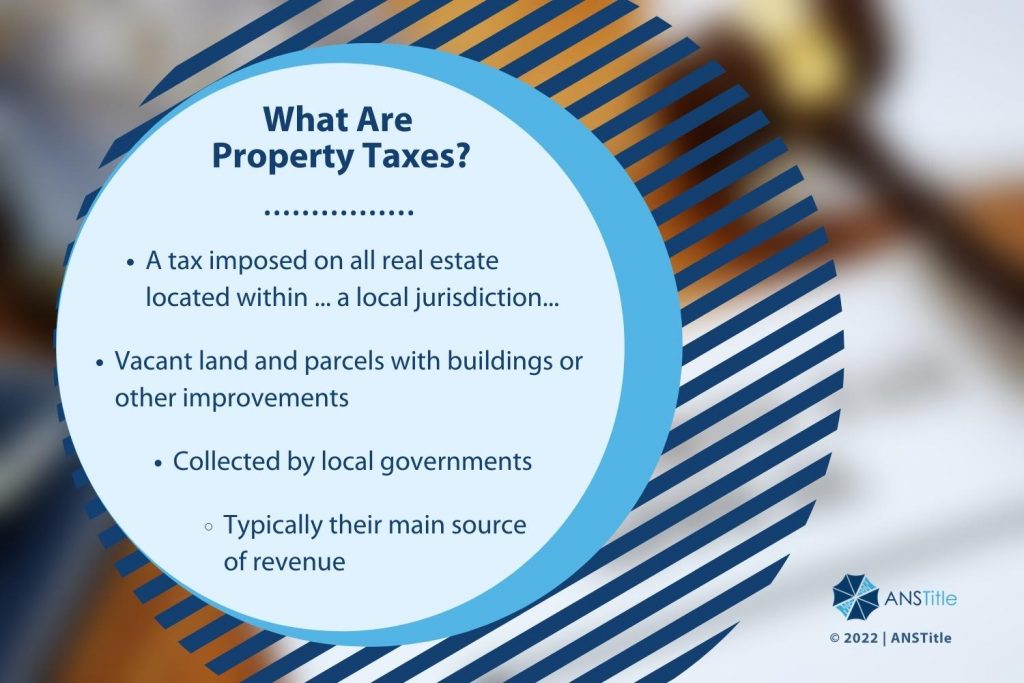
How Are Property Taxes Calculated?
Most locales compute the exact tax for each property by multiplying its assessed value by a predetermined tax rate. The assessed value is the portion of the fair market value of the property that is subject to taxation and it is determined with the help of an assessment ratio set by the tax authority.
The applicable tax rate is set independently by each jurisdiction using various guidelines. Furthermore, it will vary depending on the classification of the property (residential, commercial, industrial, farm, vacant, and more). The rate can also be expressed as a “millage” or dollars of tax per thousand dollars of assessed value.
Assessed property values are reevaluated by local officials once a year and an updated annual tax bill is sent to each property owner. For example, if the current assessed value of your home is $250,000 and the applicable tax rate is 2%, your property taxes for the year would be $5,000.
Ensuring a Fair Value for Your Property
Unless you don’t mind overpaying for property taxes, you should verify that your real estate has been assessed a fair value. There are a few things you can do to ensure the accuracy of your tax bill.
Review Your Tax Record
The first step you should take is to review your property tax record. Most counties offer online access to this public information. If digital records are not available, you should be able to obtain a hard copy at your local assessor’s office. Look through all the recorded details and make sure there are no discrepancies that may make your property appear more valuable than it is. Verify the size of the lot and the building, the improvements description, the fair market and assessed values, the applicable tax rate, etc. Â
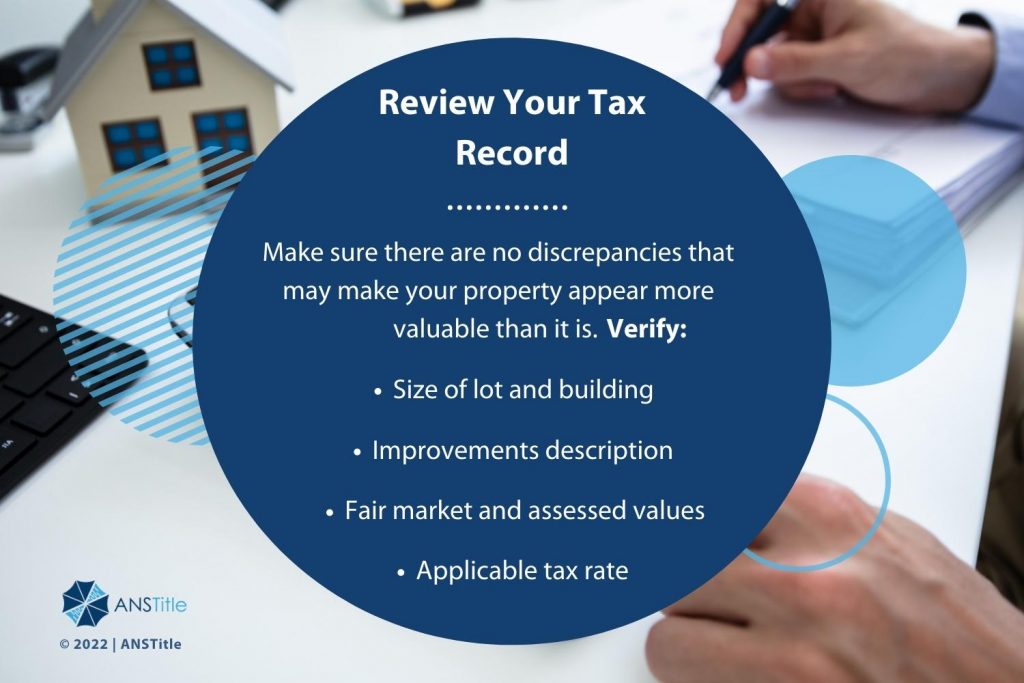
Apply for Qualifying Exemptions
Property tax exemptions can reduce your tax bill by a particular amount if you meet the eligibility criteria. For example, the homestead exemption, which is one of the most common exemptions in most states, lowers the taxable value of your property if this is your primary residence. Other common individual exemptions include:
- senior citizen exemption
- veterans exemption
- first responder exemption
- disability/blindness exemption
- widow/widower exemption
- historic preservation exemption
Remember that exemptions do not get assigned automatically to eligible properties or owners. You will have to apply for each exemption you qualify for to take advantage of the tax savings. Check the available exemptions in your jurisdiction and make sure to submit the necessary paperwork for the applicable ones before the annual deadline.
Review Comparable Properties
One of the easiest ways to determine whether your property’s value and taxes are in line is to review the tax records of comparable homes in your neighborhood. Identify a few nearby properties similar in size, age, and features and compare their tax bill to yours. If those homes are valued lower than yours, you should consider protesting your property tax appraisal. Â
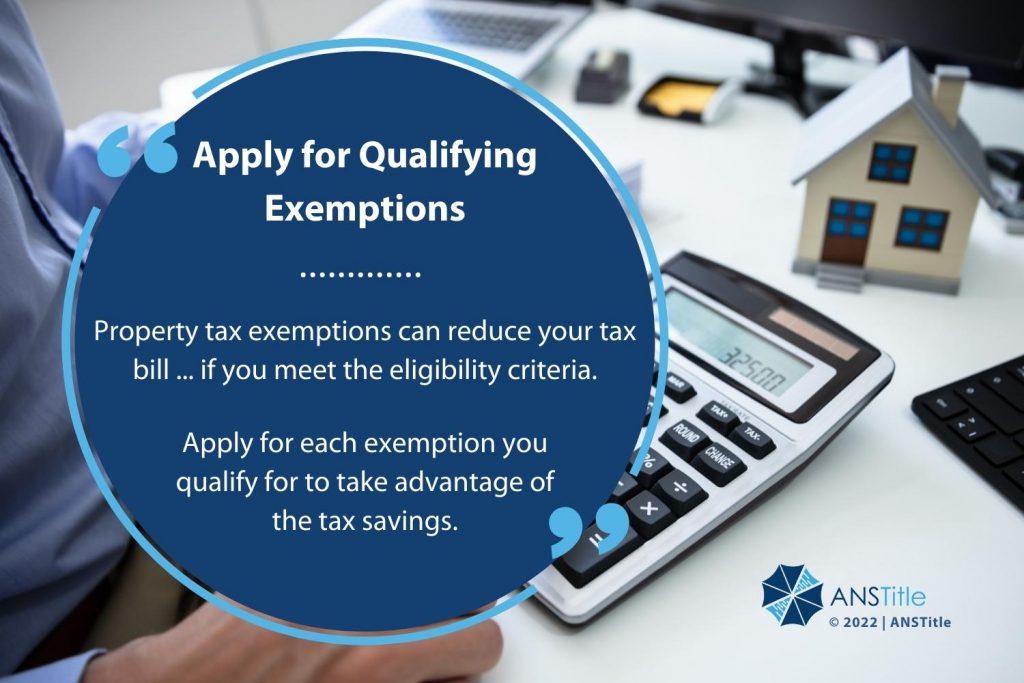
Tips for Protesting Your Property Tax Bill
If you find discrepancies in your property tax record or the assessed value seems unreasonable as compared to homes in the area, you have the option to protest your property tax bill. While this may sound daunting at first, appealing your taxes is not that difficult or uncommon. Use the tips below to prepare for the process and improve your chances of success.
Research Local Appeal Requirements
While most counties across the U.S. would follow a similar property assessment dispute process, you need to find out the specific steps required to file an appeal with your tax authority. Local governments typically offer informal hearings with an assessor, followed by a formal appraisal board review if the property owner is still not satisfied. If the board review does not resolve the dispute either, the next step would be a court hearing.
Don’t Miss the Deadlines
It is important to mention that the appeals process is only available during a specific time of the year. Property owners typically have 30 days after they receive their annual tax bill to file a protest. Check with your local tax authority to find out the exact deadline in your county. If you miss it, you won’t be able to open an appeal until you receive next year’s tax bill.
Even if you are planning on filing a dispute, remember to pay your tax bill by the due date to avoid late payment fees or a tax lien. If your appeal gets resolved in your favor, you will receive a refund or credit. Â
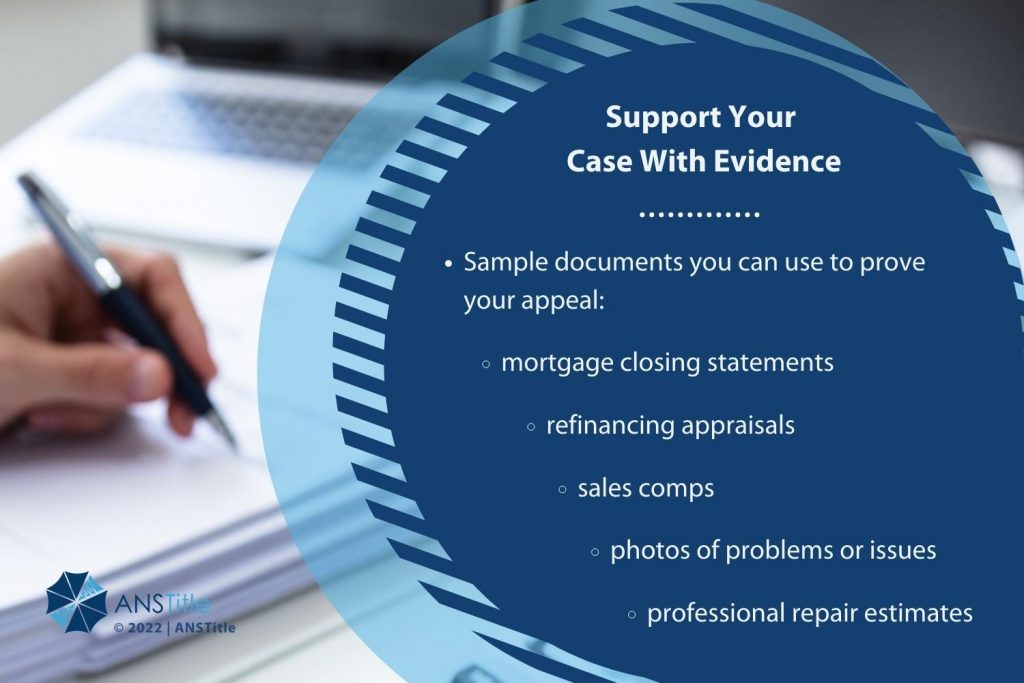
Back Up Your Claims With Facts
When filing a protest with the local tax office, be prepared to support your case with evidence. You can’t just show up and say that your tax bill is too high or simply state that it went up from last year. You need to have concrete proof supporting your claim. For example, if you are claiming that the assessed value of your property should be lower because of a structural issue or an aged roof, you should provide the assessors with photos illustrating the damages in question. Bringing a professional estimate of the repair costs would also help determine the reduced value.
Whatever reasoning you have for objecting to your tax bill, remember to provide the supporting documentation to back up your case. Sample documents that you can use to prove your appeal include:
- mortgage closing statements
- refinancing appraisals
- sales comps of neighboring properties
- photos of structural problems or other issues
- professional repair estimates
The bottom line is property assessors are not looking to assign the highest values but the most accurate ones so if you legitimately believe that your tax bill is incorrect, do not hesitate to file a protest with the local tax office.
If you need further guidance on your tax bill or any other help with the title of your home, please reach out to one of our agents. We are a New York title insurance company with over 50 years of experience in transactional real estate. ANSTitle is licensed directly in 33 states and closing in 50 states. We will be happy to answer any questions related to the title of your residential or commercial property.


